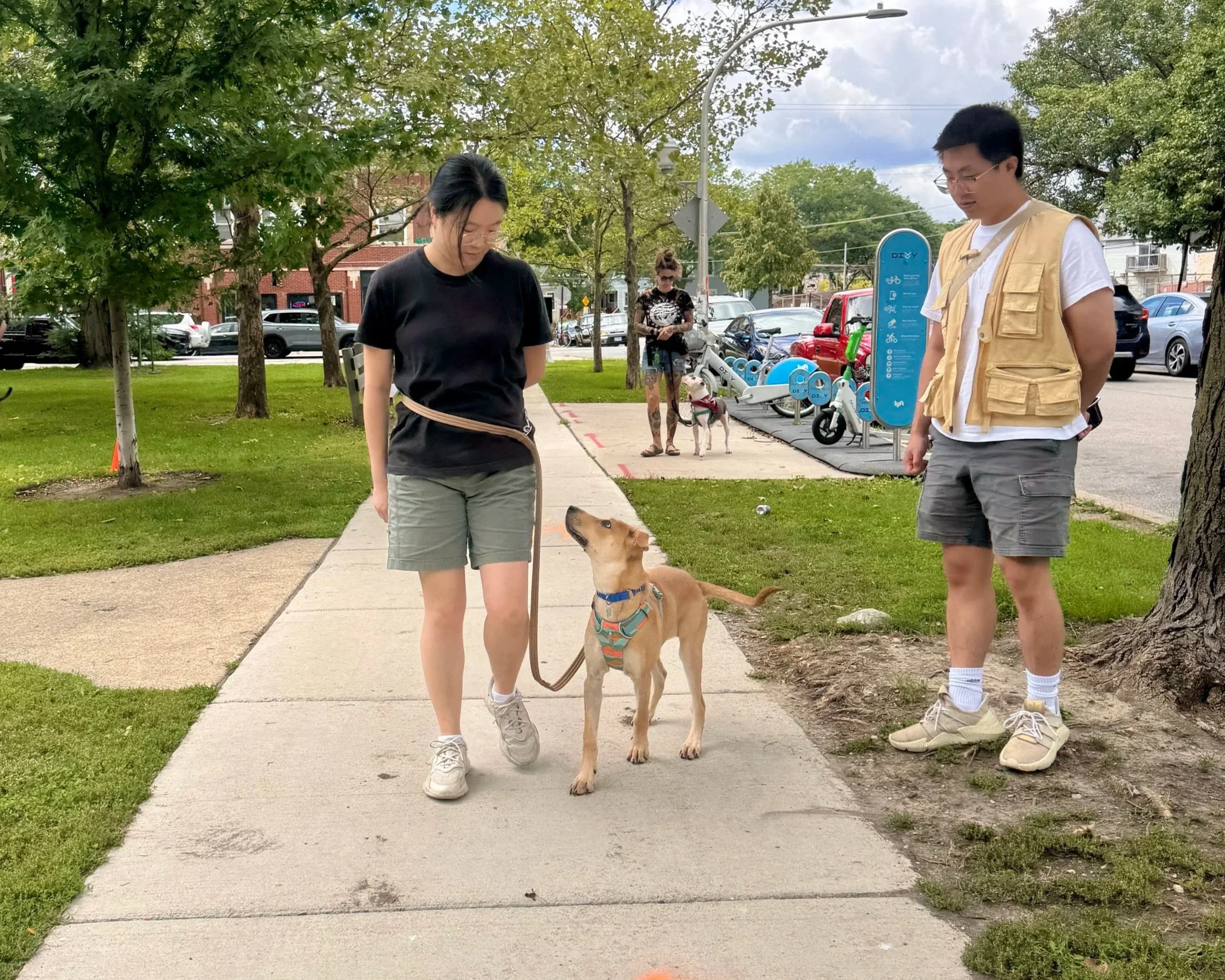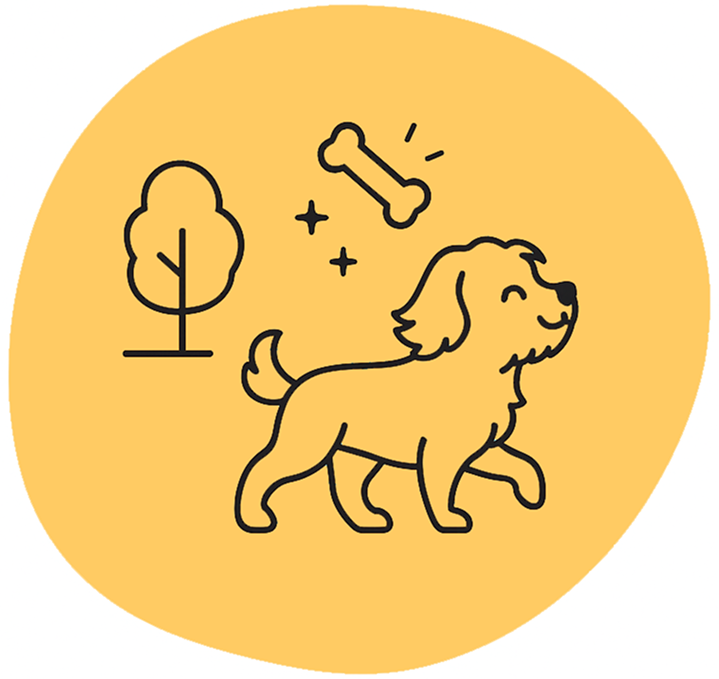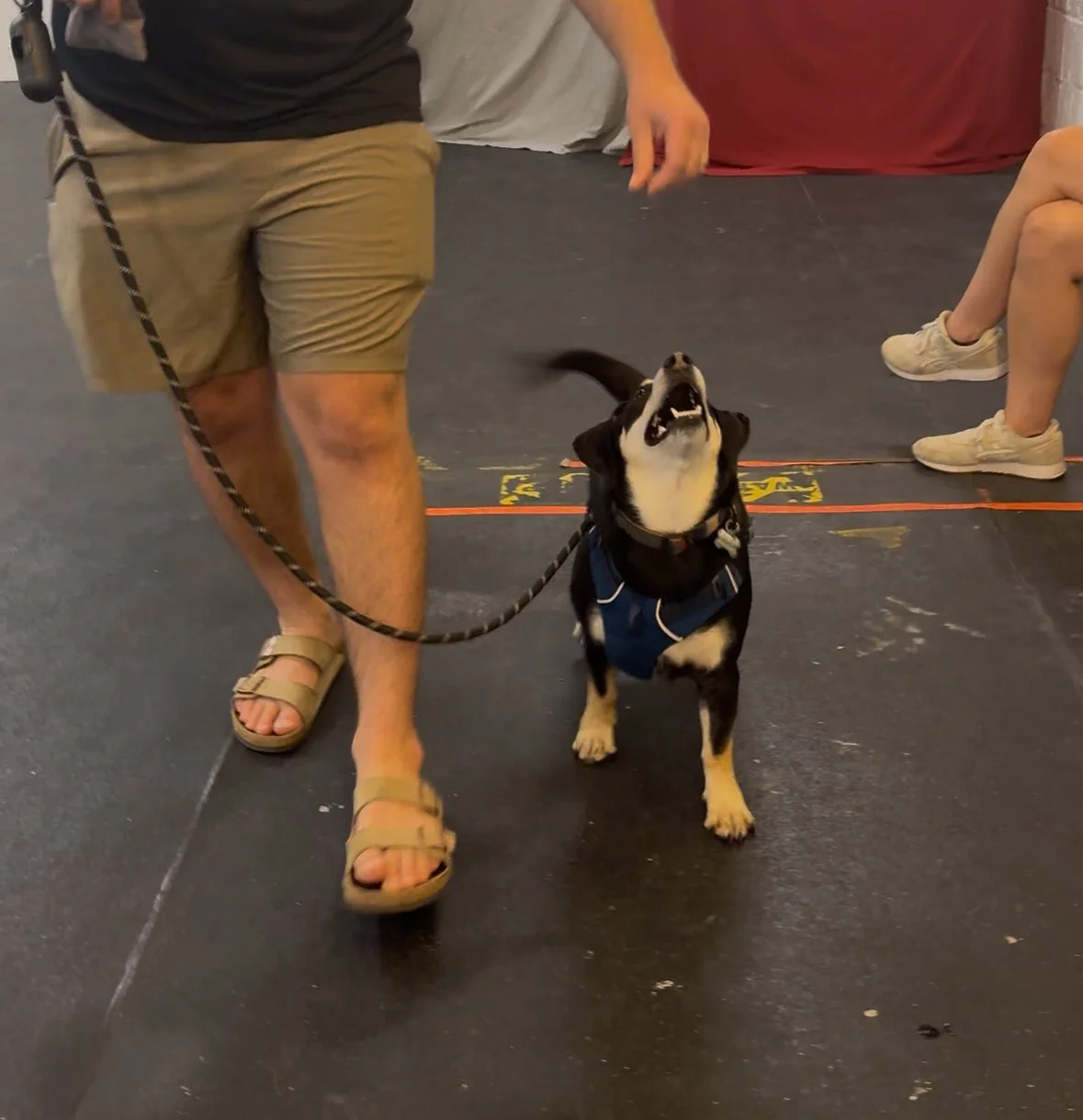
Leash Pulling Dog Training in Chicago
Loose-leash walking isn’t about making your dog obedient.
It’s about teaching them how to stay connected to you!
Helping dogs learn to walk calmly on leash makes everyday life so much easier for both of you. Leash pulling is one of the most common struggles city dog owners face — instead of walking together, it feels like your dog is dragging you from one distraction to the next. Our training focuses on building focus, confidence, and calmer walks so you can actually enjoy your time outside together.
Why do dogs pull on leash?
Many dogs pull simply because they have energy to burn. Movement is exciting, and they naturally walk faster than we do.
How we help
Instead of fighting that energy, we channel it into structured games and walking exercises that make training fun. Your dog learns how to move with you while still getting the outlet they need.
Loose-leash walking isn’t natural for dogs — it’s a skill they have to learn. Without guidance, they default to pulling.
How we help
We break leash manners down into small, achievable steps, rewarding your dog for every success. This clear, consistent teaching builds new habits that last beyond class.
Chicago sidewalks are full of distractions
It gets them where they want to go, faster
The city is full of things competing for your dog’s attention. They’re eager to get to what’s ahead.
How we help
We use focus-building exercises and simple pattern games to give your dog something familiar to do in distracting environments. These strategies help them tune in to you, even when the world feels overwhelming.
Dogs quickly learn that pulling works! Over time, this habit becomes stronger because it’s rewarding.
How we help
We flip the script by rewarding your dog for walking on a loose leash. With positive reinforcement, they discover that staying with you is what actually gets them where they want to go.
Loose-leash walking is a learned skill!
They’re full of energy and excitement
What’s the difference between leash pulling and leash reactivity?
Many dogs who pull also bark, lunge, or growl at triggers on walks — bikes, other dogs, or strangers. This is known as leash reactivity. It often comes from frustration, excitement, or stress.
Our trainers are experienced in addressing both pulling and reactivity. We’ll teach you how to:
Recognize your dog’s body language before they explode.
Give them space and safe practice setups.
Pair triggers with positive experiences so your dog can stay calmer.
We offer both group classes and private training so you can choose what works best for your family.
Let’s get to walkin’
Leash Walking & Polite Greetings
$180 / 4 weeks
Focus on leash walking in the city and polite greetings with people
Learn how to redirect your dog and play walking games that make training fun
Foundational Obedience (ages 6 months +)
$225 / 5 weeks
Learn basic obedience + intro of leash walking and engagement.
Perfect for puppies and new dogs who need structure.
Intermediate Obedience (ages 6 months +)
$225 / 5 weeks
Strengthen recall, stays and leash walking techniques, and stays.
Add advanced skills like heel, place, and tricks.
Private Lessons (for Puppies & Adults)
Packages available
One-on-one coaching designed for your dog’s specific needs. Perfect if your dog struggles with pulling, reactivity, or if you’d like personalized support.
FAQs
-
Reward them for walking on a loose leash. If they pull, stop moving until the leash relaxes. Over time, they’ll learn pulling doesn’t get them anywhere.
-
The city is full of distractions. Add in reflexive opposition, and pulling can feel automatic. Training helps them focus on you, even with busy sidewalks.
-
Yes! Most dogs can learn with consistent practice. Some see results in weeks, while others take longer if pulling has been a habit for years.
-
We avoid using equipment like prong collars and e-collars.
Most pups do well with front-clip harnesses or gentle leaders, paired with positive training. We’ll help you choose what’s best for your dog!
-
Group classes are great for practicing with distractions. Private training works best if your dog needs one-on-one help or struggles in specific situations.
Why learn leash walking skills with Copilot?
At Copilot Dog Training, we specialize in helping dogs learn loose-leash walking and leash manners using positive reinforcement.
Whether your dog is a strong puller, easily distracted, or struggles with leash reactivity, our trainers will create a step-by-step plan that works in real-life Chicago settings. From practicing in quiet neighborhoods to building focus around distractions, our approach makes leash training practical and sustainable.
We work with dogs of all ages — from energetic puppies just starting out to adult dogs with long-standing habits. Through a mix of private dog training sessions and group classes in Chicago, we’ll help you enjoy calmer, more connected walks with your dog.











